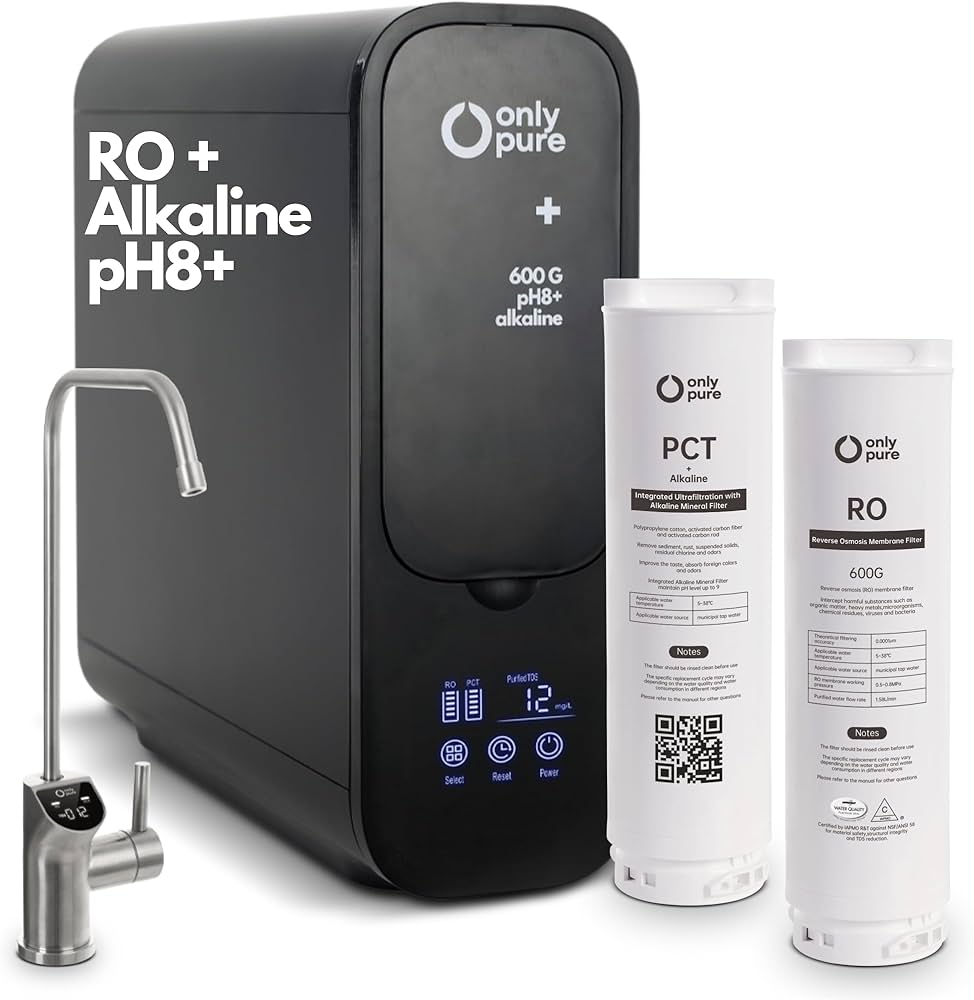Reverse osmosis (RO) water has become increasingly popular due to its ability to remove a wide range of impurities from tap water. However, some people question whether does reverse osmosis water hydrate you or if it actually dehydrates you. This article aims to clarify the science behind RO water and its impact on hydration. We’ll explore how RO works, examine the role of electrolytes in hydration, and debunk common myths surrounding RO water and dehydration.
Reverse Osmosis Water Explained
Reverse osmosis is a filtration process that uses a semi-permeable membrane to remove contaminants from water. Water molecules are allowed to pass through the membrane, while larger impurities like salts, minerals, bacteria, and viruses are blocked. This results in highly purified water that meets stringent safety standards.
The RO system typically consists of several stages: pre-filtration, reverse osmosis filtration, post-filtration, and storage. Pre-filters remove larger particles, protecting the RO membrane. The RO membrane acts as a barrier, allowing only water molecules to pass through. Post-filters enhance taste and odor by removing any remaining impurities.
Hydration and RO Water
Does RO water hydrate you? Absolutely! Like any purified water source, RO water hydrates your body by replenishing fluids lost through daily activities like sweating, breathing, and urination. When you drink RO water, it is absorbed into your bloodstream and used to maintain proper hydration levels.
Hydration is essential for numerous bodily functions, including regulating body temperature, transporting nutrients, removing waste products, and lubricating joints. Dehydration can lead to fatigue, headaches, constipation, and in severe cases, heat stroke or kidney failure.
Electrolytes in RO Water
Electrolytes are minerals that carry an electrical charge when dissolved in water. They play a crucial role in maintaining fluid balance, nerve function, muscle contractions, and other vital processes. While RO water effectively removes impurities, it can also remove some essential electrolytes like sodium, potassium, and calcium.
However, the amount of electrolytes removed by RO is typically minimal. Most people obtain sufficient electrolytes from their diet, so consuming RO water alone is unlikely to cause electrolyte deficiency. If you are concerned about electrolyte intake, consider adding a pinch of salt to your RO water or consuming electrolyte-rich foods and beverages.
Dehydration Myth Debunked
The myth that does RO water dehydrate you stems from the misconception that removing minerals from water somehow makes it less hydrating. This is not true. While electrolytes are important for hydration, they only make up a small percentage of the total fluid volume in your body.
RO water effectively hydrates you by replenishing the majority of your body’s water content. The removal of some electrolytes is negligible compared to the amount you obtain through your diet and daily activities.
Benefits of Choosing RO Water
Choosing RO water offers several benefits beyond hydration:
- Improved Taste and Odor: RO water removes impurities that can contribute to unpleasant tastes and odors, resulting in cleaner-tasting water.
- Enhanced Safety: RO systems effectively remove harmful contaminants like bacteria, viruses, lead, and pesticides, providing a safer drinking water source.
- Reduced Health Risks: By removing contaminants, RO water can help reduce the risk of certain health problems associated with contaminated water, such as gastrointestinal illnesses, kidney disease, and developmental issues.
Conclusion
Reverse osmosis water is a safe and effective way to stay hydrated. It effectively removes impurities while providing clean, refreshing drinking water. While some electrolytes may be removed during the filtration process, this is minimal and easily compensated for through a balanced diet. Choosing RO water offers numerous benefits, including improved taste, enhanced safety, and reduced health risks.



